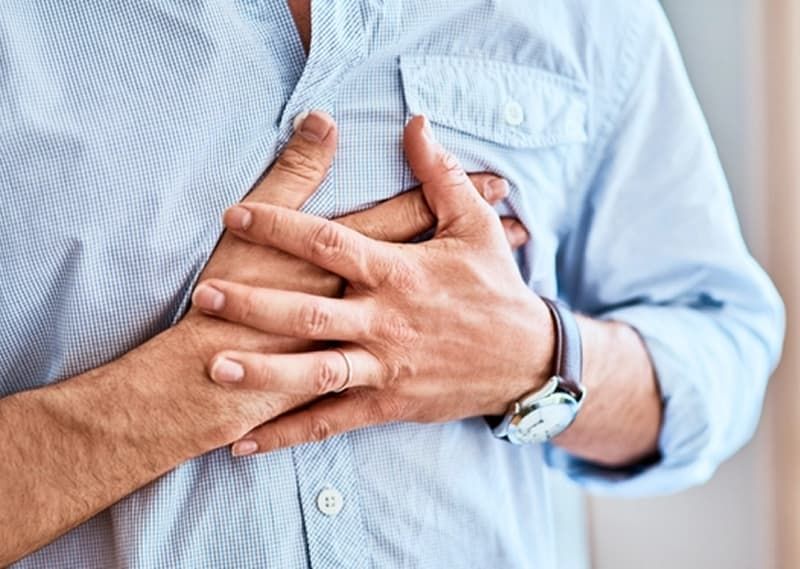Symptoms of a Heart Attack and Acting in a Timely Manner
One of the world’s largest killers, the heart attack kills millions of people each year. Death might have been averted and prognosis greatly enhanced through early identification of the attack’s symptoms and swift medical treatment. Unfortunately, not all heart attacks herald themselves loudly with crushing chest pain as in the movies. Many are insidious in their onset or present as minor threats. Awareness of these symptoms may determine life or death.

Not Everyone Has Chest Pain when Having a Heart Attack
A heart attack emerges when blocked blood reaches heart tissues due to either clots or fatty plaque formation in coronary arteries. Permanent injury of heart muscle tissue occurs when a blockage persists untreated therefore making it essential to detect early warning signs.
Although chest pain is a typical symptom of it, it does not occur each time. Past accounts have also involved pressure or a feeling of fullness or a tightening pain that spreads to the middle of the chest that lasts longer than a few minutes or occurs in waves. In a lot of others—especially women, the elderly, and the diabetic—heart attack may occur very differently.
People regularly feel dull discomfort located outside their chest where pain exists in areas such as shoulders and back and neck and jaw and left arm regions. These sensations exist as a diffuse ache which moves through the body and tends to return between episodes.
Less typical symptoms include shortness of breath even in the absence of chest pain. Shortness of breath results because the heart cannot pump the blood effectively and because fluid also tends to accumulate in the lungs. Equally as sinister are symptoms of profuse sweating (also known as a “cold sweat”), vomiting or nausea, dizziness or fainting. These are usually ascribed to digestive distress, stress or exhaustion, and delay much-needed medical attention. Be aware of crushing fatigue or an unexplained feeling of impending doom as these also may herald a heart attack.
When Symptoms Are Silent: A Much Greater Danger
Oftentimes, particularly in the case of diabetic patients, these nerve fibers that transmit pain may get damaged, causing a so-called silent heart attack. Such silent heart attacks may be caused by very slight or even no symptoms and the victim will not even realize that the heart has experienced damage. Regular checks and visits to a medical practitioner are most crucial for individuals with a higher risk for silent heart attacks.
Immediate Steps to Save a Life
If you or a loved one are having symptoms of a heart attack, minutes matter. The sooner you restore blood flow to the heart, the better. Here’s what you should do:
1. Call Emergency Services Immediately
Call emergency services immediately—don’t wait to see how symptoms resolve. Every minute that you wait risks more permanent heart muscle damage. The emergency medical services staff are trained to begin treatment the minute that you are there, even before you reach the hospital.
2. Take the Aspirin as Instructed
Unless the person is allergic or a doctor says differently, a dose of aspirin (typically 325 mg) should be taken while going for emergency assistance. Aspirin will thin the blood and possibly halt the formation of the clot causing the heart attack.
3. Try to Reassure the Person
Strain and stress will exacerbate the condition. Have the person sit as still as possible. Relax tight clothing and make the surroundings as quiet as possible to reduce the workload of the heart.
4. Keep an AED Close By, If Possible
They have Automated External Defibrillators in public places for sudden cardiac arrests that may result in a heart attack. Using one and the basics of CPR save lives and are a skill that should be taught to more people.
 Disclaimer:
Disclaimer:
The content provided on our blog site traverses numerous categories, offering readers valuable and practical information. Readers can use the editorial team’s research and data to gain more insights into their topics of interest. However, they are requested not to treat the articles as conclusive. The website team cannot be held responsible for differences in data or inaccuracies found across other platforms. Please also note that the site might also miss out on various schemes and offers available that the readers may find more beneficial than the ones we cover.
Featured Articles
-
 Travel
TravelTips for Getting Your Bags from the Carousel First
-
 Home & Garden
Home & GardenIs a Dishwasher for Your New Home a Right Choice?
-
 Automotive
AutomotiveUnwritten Rules for Buying a Used Pickup Truck
-
 Home & Garden
Home & GardenInsider Tips for Purchasing a Mattress that you Should Know
-
 Home & Garden
Home & GardenSecrets of Ideal Timing for Picking Garden Vegetables
-
 Travel
TravelExplore 2025’s Top Family Travel Tours for Unbeatable Value




